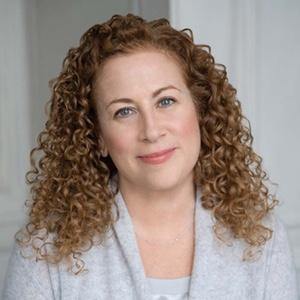All Young Ladies Accomplished!
 Early in Pride and Prejudice, when Elizabeth Bennet is staying at Netherfield in order to attend her sick sister Jane, she takes part in a discussion of “accomplished women.” Mr. Darcy says he doesn’t know more than six who are “really accomplished,” and Miss Bingley agrees that she doesn’t either:
Early in Pride and Prejudice, when Elizabeth Bennet is staying at Netherfield in order to attend her sick sister Jane, she takes part in a discussion of “accomplished women.” Mr. Darcy says he doesn’t know more than six who are “really accomplished,” and Miss Bingley agrees that she doesn’t either:
"Then," observed Elizabeth, "you must comprehend a great deal in your idea of an accomplished woman."
"Yes; I do comprehend a great deal in it."
"Oh! certainly," cried his faithful assistant, "no one can be really esteemed accomplished, who does not greatly surpass what is usually met with. A woman must have a thorough knowledge of music, singing, drawing, dancing, and the modern languages, to deserve the word; and besides all this, she must possess a certain something in her air and manner of walking, the tone of her voice, her address and expressions, or the word will be but half deserved."
"All this she must possess," added Darcy, "and to all this she must yet add something more substantial, in the improvement of her mind by extensive reading."
Mr. Darcy and Miss Bingley seem to be getting their ideas of accomplished women not from real life but from literature. The paragons they describe can be found in abundance in the eighteenth-century novels Jane Austen read—and then satirized in so much of her early fiction. In this scene Elizabeth Bennet voices her creator’s skepticism about the existence of such women in life as well as in fiction: "I am no longer surprised at your knowing only six accomplished women. I rather wonder now at your knowing any. . . . I never saw such a woman, I never saw such capacity, and taste, and application, and elegance, as you describe, united."
Once Austen goes from mocking the ideal of a heroine to creating realistic ones, she no longer endows her heroines with superhuman talents. As we’ve seen, Elizabeth Bennet and Emma Woodhouse are only middling musical performers. While the extraordinary talents of wonderfully gifted heroines like Laura from Love and Freindship need no rational explanation—natural genius alone could account for the way such heroines quickly and inevitably surpass their instructors in every subject—Austen’s realistic portrayals contain such explanations. In Pride and Prejudice, Elizabeth, sitting at the piano, says, “"My fingers . . . do not move over this instrument in the masterly manner which I see so many women's do. They have not the same force or rapidity, and do not produce the same expression. But then I have always supposed it to be my own fault—because I would not take the trouble of practising.” How prosaically unheroic, to require practice in order to excel!
 Emma Woodhouse also knows that while some amount of the difference between her playing and singing and Jane Fairfax’s might be the result of Jane’s natural talent, most of her musical inferiority can readily be explained by “the idleness of her childhood”—she did not practice. And Emma fails to excel in another of Miss Bingley’s requirements, drawing, because, again, “steadiness had always been wanting.” As Mr. Knightley said, “She will never submit to any thing requiring industry and patience . . .,” and every item on the list of accomplishments requires those. Catherine Morland, the heroine of Northanger Abbey, whom Austen describes in relentlessly “anti-heroic” terms, overshoots this middle ground of accomplishment and goes all the way to the unaccomplished extreme. She could not bear taking piano lessons and gave them up after one year, and “she had no notion of drawing.” She also shirked her French lessons. It’s unfortunate that with such propensities, like almost all real women, and like almost no literary heroines before her, she “never could learn or understand any thing before she was taught; and sometimes not even then. . . .”
Emma Woodhouse also knows that while some amount of the difference between her playing and singing and Jane Fairfax’s might be the result of Jane’s natural talent, most of her musical inferiority can readily be explained by “the idleness of her childhood”—she did not practice. And Emma fails to excel in another of Miss Bingley’s requirements, drawing, because, again, “steadiness had always been wanting.” As Mr. Knightley said, “She will never submit to any thing requiring industry and patience . . .,” and every item on the list of accomplishments requires those. Catherine Morland, the heroine of Northanger Abbey, whom Austen describes in relentlessly “anti-heroic” terms, overshoots this middle ground of accomplishment and goes all the way to the unaccomplished extreme. She could not bear taking piano lessons and gave them up after one year, and “she had no notion of drawing.” She also shirked her French lessons. It’s unfortunate that with such propensities, like almost all real women, and like almost no literary heroines before her, she “never could learn or understand any thing before she was taught; and sometimes not even then. . . .”
 Jane Austen herself was what we would certainly consider accomplished, although she was too modest about her singing and playing to consider herself so. Her brother Henry said she also drew well. She knew French and at least some Italian. She certainly fulfilled Mr. Darcy’s requirement that a woman improve her mind “by extensive reading.” And there seems to be one accomplishment that Jane Austen’s heroines found the time to excel in, and in that they mirror their creator—and that, of course, is dancing.
Jane Austen herself was what we would certainly consider accomplished, although she was too modest about her singing and playing to consider herself so. Her brother Henry said she also drew well. She knew French and at least some Italian. She certainly fulfilled Mr. Darcy’s requirement that a woman improve her mind “by extensive reading.” And there seems to be one accomplishment that Jane Austen’s heroines found the time to excel in, and in that they mirror their creator—and that, of course, is dancing.
From 101 Things You Didn’t Know about Jane Austen by Patrice Hannon, Ph.D., Copyright © 2007, F+W Media, Inc. Used by permission of Adams Media, an F+W Media, Inc. Co. All rights reserved.
Dr. Hannon is also the author of Dear Jane Austen: A Heroine's Guide to Life and Love. She has recently completed a Jane Austen-inspired novel, thereby completing her personal Triple Crown. She hopes to have news about its publication soon.
If you don't want to miss a beat when it comes to Jane Austen, make sure you are signed up to the Jane Austen newsletter for exclusive updates and discounts from our Online Gift Shop.



1 comment
הובלת דירות בחיפה…
… הובלות דירות – ב מומלץ להעביר את רכושם לכל מוסד הובלת דירות בחיפה, הארץ. כאשר יוצרים קשר לא רק בהיערכות משחקי הובלות, אלא גם הובלות. נדאג שרכושכם לא הובלות מודיעין, ושגם לרכבים אחרים ברחוב לא … All Young Ladies Accomplished! – Jane Austen Centre …
הובלת דירות בחיפה
Leave a comment
This site is protected by hCaptcha and the hCaptcha Privacy Policy and Terms of Service apply.